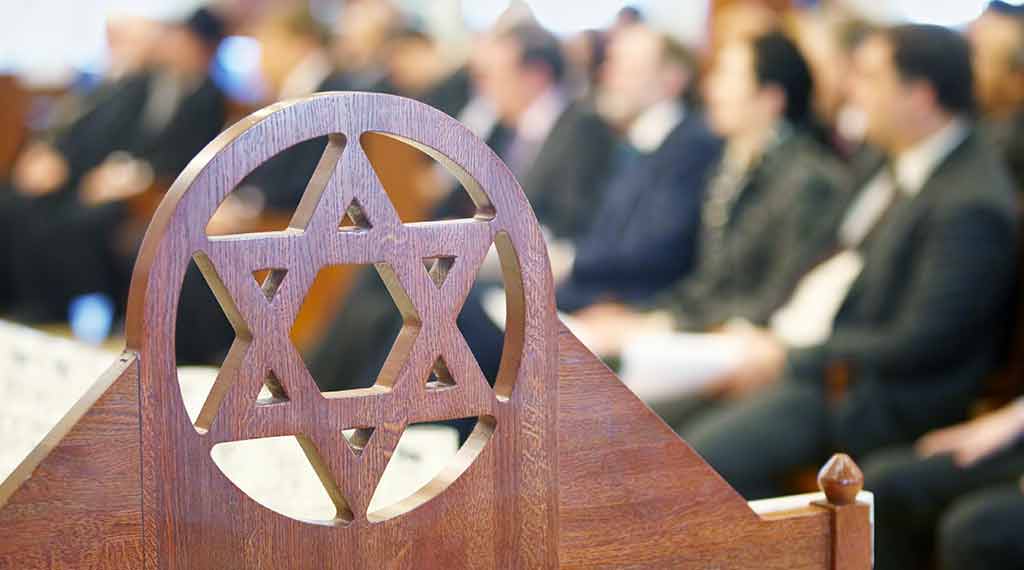
A violent mob organized by a movement that sympathizes with the Marxist terrorist group the Popular Front for the Liberation of Palestine (PFLP) descended on a Los Angeles synagogue on June 23, intent on intimidating worshippers. Masked and keffiyeh-clad goons maced and pepper-sprayed members of the local community while police—reportedly instructed not to intervene by city officials—looked on.
This pro-Palestinian terrorism pogrom outside the Congregation Adas Torah Synagogue was orchestrated in part by the Palestinian Youth Movement. It was aimed not at political opponents, but at a whole community, specifically the Jewish community of the Pico-Robertson area of Los Angeles, one of the country’s largest and most influential Jewish neighborhoods.
While the role of Islamic and far-left antisemitism in motivating the attack is obvious, it is not immediately clear why Jewish communities in the United States should be so vulnerable. In theory, the American Jewish community should be more secure and more resilient to such threats than nearly any other religious or ethnic community in this country.
To begin with, the Jewish community has never been oblivious to the threat of violent antisemitism and has long taken steps to address the problem. Numerous community organizations exist to advocate for and provide security to Jewish institutions. Historically, Jewish institutions have received the majority of Department of Homeland Security funding through the Nonprofit Security Grants Program. Organizations like the Secure Community Network (SCN) provide education, training, and alerts to Jewish institutions on a variety of threats.
As SCN’s Brad Orsini has noted, the “days are gone where we can rely on law enforcement solely. … We can no longer afford to have security as a luxury. It needs to be a line item budget in all our facilities.” The West Coast-based Magen Am provides armed rapid response support and does guard service for multiple synagogues, Jewish schools, and community events in three cities, including Los Angeles. Private first responder networks, known as Hatzalah, provide ambulance and EMT capabilities in many Orthodox Jewish communities.
Behind this laudable understanding of the security challenges stand larger community organizations with multimillion-dollar budgets that—at least theoretically—possess not only the political and reputational heft to engage with civic leaders and law enforcement and demand action and accountability, but also the legal acumen to seek civil causes of action against the groups and people who target their communities.
And this is all for the good.
But, for journalist Daniel Greenfield, the assault on Pico-Robertson represents “a moral and strategic failure” of Jewish community leadership that left neighborhood residents, synagogue attendees, and Jewish counterprotesters fundamentally unprepared to meet the assault.
Jonathan Greenberg, a Reform rabbi active in Jewish philanthropy, notes that such failures are as much about mindset as the availability of assets. He writes, “A key takeaway from the last several months and the Jewish community had better learn it right quick: We need to harden our targets right now. And it starts with hardening our people.”
Part of that hardening is the necessary recognition of the change in American Jews’ status in the progressive stack. For decades, the country’s Jewish community was seen as a vulnerable minority; it enjoyed the protection of the extensive civil rights legal apparatus adapted to focus on the rights of perceived vulnerable communities. Increasingly, this is no longer the case. Jewish Americans have found themselves lumped—by academics, campus radicals, and the elites—among the oppressor rather than oppressed class.
- Terrorist Designation for Muslim Brotherhood a Huge Blow: Kyle Shideler - November 25, 2025
- Antifa groups designated as FTOs - November 17, 2025
- Kyle Shideler Testifies at the Senate Judiciary Subcommittee Hearing on Political Violence - October 29, 2025
